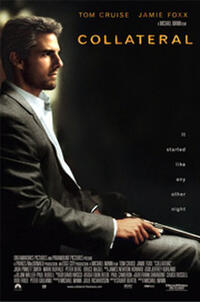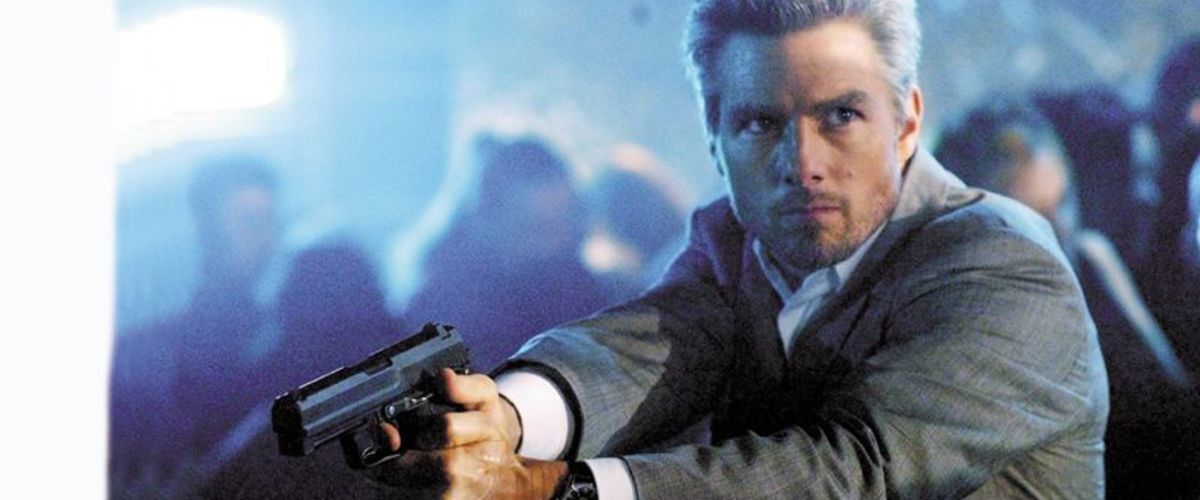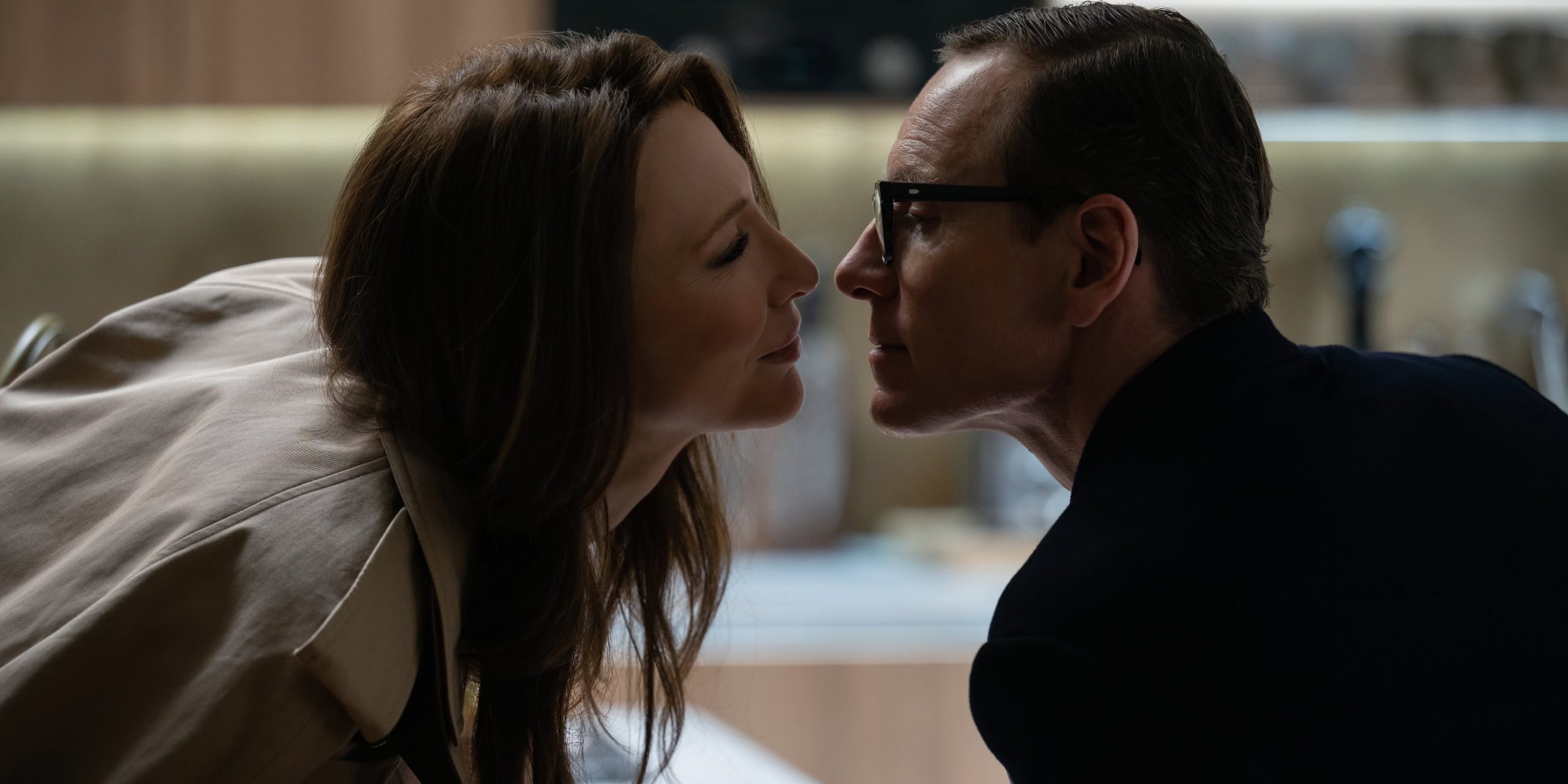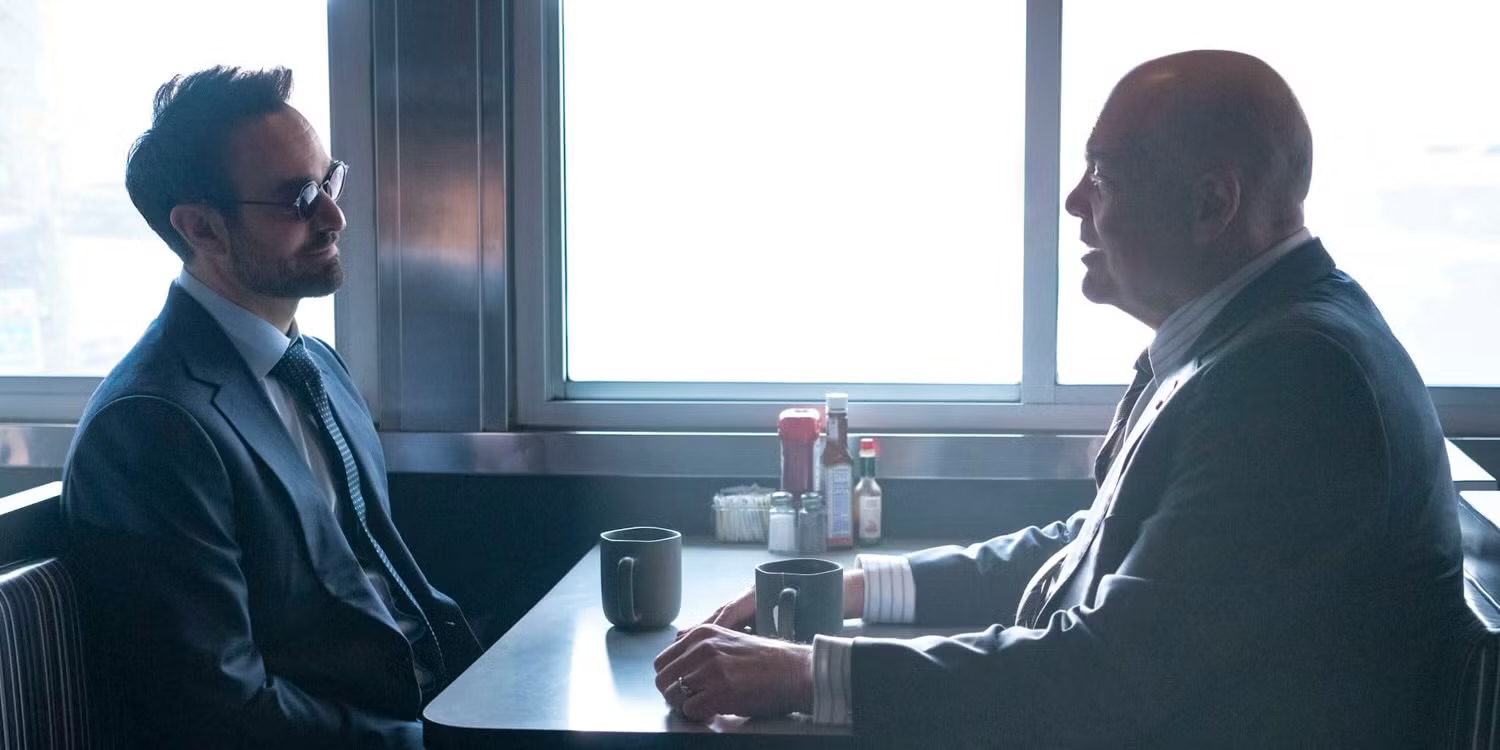Collateral

This latest film from director Michael Mann (Heat) opens with a deliberate slow-burn that actually works in its favor. Immediately, we are introduced to a mild-mannered, friendly cabbie named Max (Jamie Foxx). One night, as he is making his rounds, one of his passengers is Annie (Jada Pinkett Smith), a federal prosecutor who is initially too busy preparing for a case that she hardly notices her driver. But when he starts up a conversation, she opens up gradually. They make a bet as to which route will get them downtown faster. Max says he knows the quickest way, and if he loses the bet, the ride is free. Soon enough, we learn more about her. She tells him that she cries the night before a big case. He tells her that he is only doing this part-time, saving up enough money in hopes of eventually running his own limousine service. Mann handles this scene with great subtlety; clearly these two people are developing an interest in one another, yet they are not openly flirting. Finally, when he drops her off, he regrets not getting her number. But then she taps on the window and hands him her business card.
Now we know more about Max, which is important when a well-dressed man sporting a gray suit and short haircut gets in. He introduces himself as Vincent, and offers the cabbie six hundred-dollar bills to drive him around for the rest of the night. Considering that Al Pacino’s character in Heat shares the same name, I wonder if the director likes to assign that name to his top-billed actors. But nevermind: if you haven’t figured it out already, this is the Tom Cruise character. He has a gun and is also carrying a briefcase with him. He needs to make five stops before dawn, and so they arrive at an apartment.
Max waits for his new passenger for a few minutes. Suddenly, a man’s body lands on top of the cab, damaging the roof and windshield. Naturally, he freaks out when he sees Vincent casually strolling back from the building. Max asks him if he killed the guy. Vincent insists that it was the fall and bullets that killed him. This marks the beginning of a very long and increasingly dangerous night for the poor cabbie. Clearly, the man in his backseat is a lethal contract killer. Of course, the promotional materials and marketing have already revealed this. This is the smallest surprise in a film with plenty in store.
As the ride continues, we learn more about Vincent. His worldview is a nihilistic one: to him, people are simply specks in this vast universe. If a few of them die, so what? No one will even notice. At one stop, Cruise’s charisma is especially on display when he takes Max into a nightclub and engages in a conversation with the owner, who recalls a special night when he met Miles Davis. Cruise strikes just the right balance between coming off as charming while also reminding us that–when all is said and done–he is a cold-blooded killer. Another example is when he forces Max to visit his mother in the hospital, but I will leave you to discover how the scene plays out for yourself. Mann showcases his skill at delivering unexpected laughs without breaking the tension.
The result is a very effective thriller with excellent character development, a smart script by Stuart Beattie (who also penned last year’s smash hit Pirates of the Carribean: The Curse of the Black Pearl), and so you care about these characters during the action sequences. It’s refreshing because in so many other blockbusters, the action is just white noise because we don’t feel connected to the thinly-sketched participants. The direction and cinematography is top-notch as well, imbuing the film with a consistent grain–a technique also used in Heat. It gives the Los Angeles world that these people inhabit a grounded and gritty feel, and immerses us in it.
This taut, tightly-paced thriller keeps you invested even between the shootouts and chases. It clocks in at two hours, and not a minute of it feels wasted. Cruise and Foxx have great chemistry together, and if the former was in a completely different line of work, they might be friends. Each has a different worldview, with Vincent telling Max that he has been fooling himself by driving a cab for so long, and says he is wasting his life. He even encourages him to live on the edge more. The cabbie knows he shouldn’t heed the words of this sociopath, but realizes that there is perhaps a kernel of truth in there. Even when forced into a terrible situation, he avoids breaking the law unless absolutely necessary–and it is, in several instances. For these two men, it’s a rough road. Yet miraculously, Collateral rises above its genre conventions, and is well worth the journey.
120 minutes
Contains intense scenes of bloody violence, and coarse language.





Post Comment